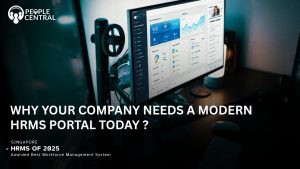In the realm of Human Resources (HR), compliance is paramount. It’s not just about adhering to laws and regulations; it’s about creating a safe, ethical, and inclusive workplace that fosters employee well-being and business growth. Our goal in this comprehensive guide is to delve into the intricacies of HR compliance and equip you with the knowledge and insights to ensure your organization’s HR practices are not only legally sound but also a competitive advantage.
What is HR Compliance?
HR compliance encompasses a wide array of policies, procedures, and practices that organizations implement to ensure they adhere to local, state, and federal employment laws and regulations. These regulations govern aspects such as labor standards, equal employment opportunity, workplace safety, and employee benefits.
The Legal Landscape
Navigating HR compliance can be a complex task, as the legal landscape varies by region. Some key components include:
- Labor Laws: Understanding minimum wage and hour laws, overtime regulations, and minimum working age restrictions is crucial. Compliance with the Fair Labor Standards Act (FLSA) is essential to avoid costly legal issues.
- Anti-Discrimination Laws: These laws prohibit discrimination based on factors such as race, gender, age, religion, and disability. Compliance with the Civil Rights Act and the Americans with Disabilities Act is paramount.
- Health and Safety Regulations: Ensuring a safe work environment is a top priority. Compliance with the Occupational Safety and Health Administration (OSHA) standards is a legal and moral obligation.
- Employee Benefits: Managing employee benefits, such as healthcare, retirement plans, and family leave, requires adherence to laws like the Employee Retirement Income Security Act (ERISA) and the Family and Medical Leave Act (FMLA).
Implications of Non-Compliance
Non-compliance with HR regulations can have severe consequences, including legal penalties, damage to your organization’s reputation, and a negative impact on employee morale. Moreover, lawsuits and fines can drain resources that could otherwise be invested in business growth.
The 4 Stages of HR Compliance Management
To excel in HR compliance, organizations typically progress through four stages:
Stage 1: Regulatory Awareness
In this stage, HR professionals familiarize themselves with the relevant employment laws and regulations. They identify which rules apply to their industry and location and stay updated on any changes. Regulatory awareness lays the foundation for comprehensive compliance efforts.
Stage 2: Policy Development
Once the regulatory landscape is understood, organizations must develop clear and consistent HR policies and procedures that align with the legal requirements. These policies should be easily accessible to all employees and regularly reviewed to ensure they remain compliant with evolving regulations.
Stage 3: Training and Education
To ensure that everyone within the organization is aware of HR compliance requirements, robust employee training programs are essential. These programs should not only educate employees on the laws and regulations but also foster a culture of compliance. Regular training sessions and ongoing education help employees recognize and report compliance issues.
Stage 4: Monitoring and Auditing
The final stage involves continuous monitoring and auditing of HR compliance. Regular internal audits help identify and rectify potential compliance issues before they escalate. This proactive approach minimizes legal risks and ensures that the organization’s HR practices remain aligned with the ever-changing legal landscape.
HR Compliance Best Practices
To ensure your organization is on the path to HR compliance success, follow these best practices:
#1 Regular Compliance Audits
Conduct regular internal audits to identify and rectify potential compliance issues. This proactive approach can help you avoid costly legal disputes and maintain a positive workplace culture.
#2 Stay Informed
The regulatory landscape is ever-evolving. Stay informed about changes to employment laws and regulations at local, state, and federal levels. Join industry associations and subscribe to relevant newsletters to keep up-to-date.
#3 Clear and Consistent Policies
Develop clear and consistent HR policies and procedures that align with current regulations. Regularly review and update them to reflect changes in the legal landscape.
#4 Employee Training
Invest in comprehensive employee training programs that focus on HR compliance. This empowers your workforce to recognize and report compliance issues, fostering a culture of accountability.
The Benefits of HR Compliance
Compliance with HR regulations is not just a legal necessity; it offers numerous advantages to your organization:
- Reduced Legal Risks: By adhering to laws and regulations, you minimize the risk of costly legal battles and fines.
- Enhanced Reputation: A commitment to compliance enhances your reputation as an employer, making it easier to attract and retain top talent.
- Improved Employee Satisfaction: Compliance ensures fair treatment, safety, and job security for employees, leading to higher job satisfaction.
- Increased Productivity: A compliant workplace promotes a positive atmosphere, which can boost productivity and drive business success.
Know the Quick Add-Ons to HR Compliance
HR Compliance: A Strategic Imperative
Minimizing Legal Risks and Fostering Growth
HR compliance is not just a legal box to check; it’s a strategic imperative. By prioritizing compliance, your organization not only minimizes legal risks but also creates a thriving workplace culture that fosters growth and innovation. Stay informed, invest in training, and embrace Human Resource compliance as a competitive advantage. In doing so, you’ll not only meet the legal requirements but also outperform your competition in the journey toward excellence.
Audit Trails: Ensuring Transparency and Accountability
Key to Adherence and Records Management
Audit trails play a critical role in ensuring transparency and accountability. Compliance with legal obligations and regulatory requirements is key, and maintaining comprehensive compliance records supports your commitment to adherence. Regular compliance training and clear communication of compliance responsibilities across all levels of your organization foster a culture of ethics and accountability.
Contractual Compliance: Aligning Policies and Workplace Culture
Continuous Assessment and Risk Mitigation
Workplace rules, employee contracts, and company policies must be in line with contractual compliance, and continuous assessment is necessary to identify and mitigate compliance risks. The commitment to legal compliance and the integration of compliance responsibilities into the employee lifecycle ensures a workplace where workplace discrimination is actively discouraged.
Compliance Regulations: Guiding Workplace Activities
Robust Training and Open Communication
In addition to ensuring that all aspects of HR practices are aligned with compliance laws, it’s vital to pay attention to compliance regulations in all workplace activities. Robust training programs and open communication about compliance obligations ensure that your workforce understands the significance of following compliance obligations at all times. Clear and comprehensive compliance checklist and robust workplace policies are crucial for compliance and maintaining a positive workplace culture.
Maintaining Ethical HR Practices
Collaboration, Statutory Compliance, and Risk Mitigation
The role of audit trails and maintaining a robust system for compliance documentation ensures that your organization meets its compliance obligations and adheres to compliance laws. Collaborating with the appropriate regulatory bodies and ensuring statutory compliance helps your organization maintain ethical HR practices while mitigating potential compliance risks.
Let’s Conclude!
In conclusion, navigating HR compliance is a multifaceted journey that involves aligning with regulatory compliance, legal obligations, and regulatory requirements. It’s a commitment to creating an ethical, inclusive, and safe workplace. Understanding the significance of compliance responsibilities, the impact of compliance risks, and the role of compliance training is crucial for the success of your organization.
By prioritizing compliance regulations and integrating them into all aspects of the employee lifecycle, your organization not only meets its legal requirements but also fosters a culture of ethics, transparency, and accountability. Compliance is not just about compliance obligations; it’s about creating a thriving workplace that encourages growth and innovation. Embrace HR compliance as a strategic advantage, and you’ll not only meet your legal requirements but also outperform your competition.








 5
5


























